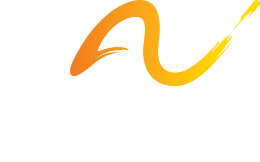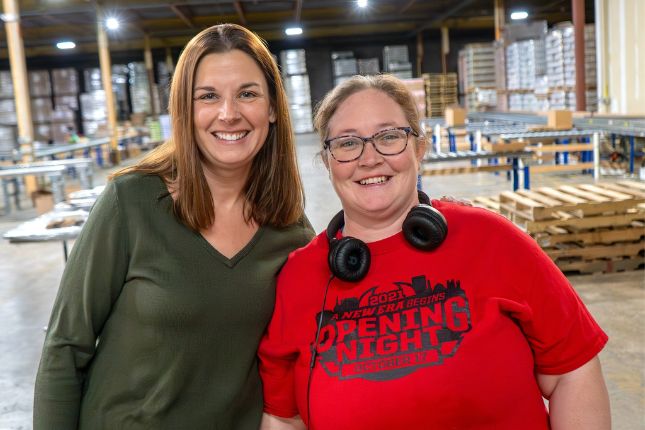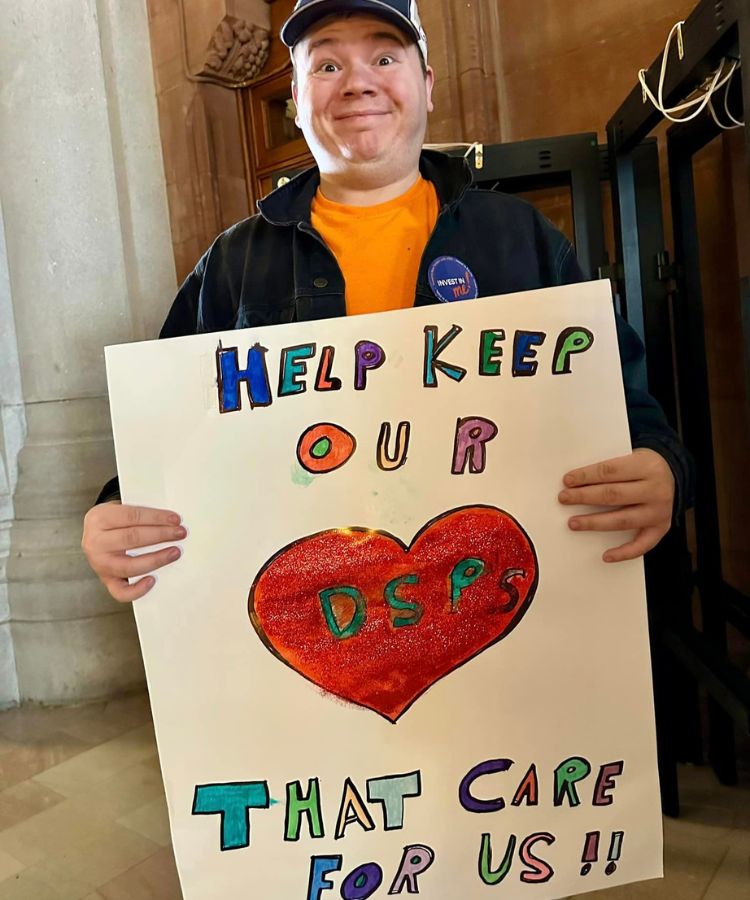Issue:
Direct Support Professionals (DSPs) are essential workers who provide daily care, services and supports to people with intellectual and developmentally disabilities (I/DD) 24 hours a day, 7 days a week. Caring for people with complex needs is a rewarding yet challenging job, which requires ongoing training, high-level of responsibility, and skill.
This workforce has shown exemplary strength and fortitude throughout the COVID-19 pandemic crisis and continue to demonstrate their commitment to the people they support. These are not just jobs; they are careers and must be treated as such.
Nonprofit provider agencies funded by the Office for People with Developmental Disabilities (OPWDD) employ nearly 100,000 DSPs, and deliver 85 percent of the needed services to approximately 140,000 people with I/DD in New York State. Almost all funding for these agencies comes from the government.
Statewide reimbursement for voluntary sector DSP salaries has increased only very modestly over the past decade, but still puts starting wages at or barely over minimum wage. By contrast, DSPs in state-operated programs receive consistent step increases year after year, with the current wage nearly 50% higher than the voluntary sector. Many of our most knowledgeable DSPs are being lost to higher-paying entry-level job sectors, which continue to increase their hourly wages. Their contributions, ingenuity, and dedication are immeasurable. We cannot afford to lose their skills and insight. However, the federal government and New York state struggle to acknowledge their contributions.
Without adequate funding, I/DD providers cannot offer competitive wages to recruit and retain the skilled direct support staff that provide the foundation of care for New Yorkers with I/DD. The existing workforce crisis pre-dates the COVID-19 pandemic, but escalated dramatically in its wake. Without immediate action, this crisis will continue to force service reductions, program closures, and loss of supports for people with I/DD throughout the state. With approximately 5,000 to 7,000 people on waitlists for supports and services, resolving the workforce crisis is pivotal in order to fully address the needs of New Yorkers with I/DD.
It is absolutely critical that we secure the funding necessary to pay our DSPs a wage commensurate with their ability, experience, and performance. We have already seen valuable DSPs leave the field due to the hardship they face. If we do not act, many years of progress toward community integration, choice, and deinstitutionalization for people with I/DD will be lost. DSPs are our front-line essential workers and deserve more.
Cost increases related to mandated fringe benefits, repairs and maintenance, utilities, food, supplies, transportation, and insurance have resulted in significant financial pressures. Non Profit provider agencies are solely funded through Medicaid and are thus unable to increase reimbursement for services to compensate for increased costs of operations.
In addition to the program closures, a survey conducted by New York Disability Advocates (NYDA) during the 3rd quarter of 2022 found that:
- Average statewide non-profit provider workforce turnover rate is 31%
- Turnover costs for non-profit providers have risen to more than $100 million annually
- Average statewide staff vacancies for voluntary, non-profit providers totals nearly 20,000 unfilled positions
- Average statewide starting wage for DSPs on average is $16.14, only 7% above minimum wage, compared to DSPs employed by NYS, who earn $23.75 on average – that is a 47% difference in starting wages for the same exact position
- All of the above exacerbates an already long waitlist for people that need services
We are no longer talking about a future crisis, the crisis is now!
Call to Action: Address the Critical Workforce Shortage
We call on the governor and legislature to support people with I/DD in the FY25 NYS budget by:
- Establishing a new Direct Support Wage Enhancement (DSWE) as part of the SFY 2025 New York State budget. Through the proposed DSWE, provider agencies would receive an annual funding allocation of $4,000 per eligible employee to be used for the purpose of enhancing the hourly rate of pay for all staff that have direct care/support responsibilities for people with I/DD. This will provide agencies with the ability to increase the hourly pay by approximately $2.19/hour annually for eligible staff presuming each staff member receives the same increase. Funding must be utilized by provider agencies to enhance the rate of pay for direct support employees.
- Including the statutory 3.2% Cost of Living Adjustment (COLA) in the FY25 budget, which is based on the US Bureau of Labor Statistics’ July 2023 CPI-U 12 month percentage change.[1]
- Commit to an acuity-based rate methodology, which fully compensates providers that support people with higher levels of behavioral and medical needs, requiring increased staff at a level on par with state-operated programs supporting people with similar needs.
In addition, we propose the state and federal government to:
- Create a Standard Occupational Classification (SOC): Direct Support Professionals are not designated with their own SOC by the Bureau of Labor Statistics, as a result, DSP wage and occupation data is not accurately captured. This diminishes the true impact of the workforce crisis, hinders opportunities for professional advancement, certifications, and the pursuit of a life-long career. We must acknowledge that DSPs deserve a path forward and people with I/DD deserve a passionate advocate at their side daily.
- We support ( 1332/H.R. 2941) Recognizing the Role of Direct Support Professionals Act, to accomplish this goal
- Establish a Personal Income Tax Credit for DSPs: We recommend that a $2,500 refundable personal income tax credit be established for people who are employed by or contracted by not-for-profit provider agencies who are in 100, 200 or 300 direct care positions providing supports and services to people with I/DD. This tax credit could phase out on incomes over $50,000 and could be capped for people with incomes in excess of $100,000.
- Expand the BOCES Program: A successful pilot program with Capital Region BOCES teaches students the skills necessary for a long-term career supporting people with disabilities. The pilot project aligns state education standards with quality DSP training metrics and offers certification in six areas. We recommend that the State establish a plan to replicate this program statewide by 2024.
- Create and Fund a Permanent Joint Credential and Career Ladder Program for DSPs: The state must implement a multi-tiered credential program for DSPs with a hybrid model of on-line, classroom and work-based learning tied to increased pay for people completing each tier of the credential. By doing so, the state will be able to increase DSP tenure, job satisfaction and provide a clear career path for DSPs in the voluntary sector. In addition, the state must implement a statewide Career Ladder Program, which will provide a pathway to an associate’s degree in the human services field for those DSPs who have participated in the credentialing program and offer it at no cost to the participants. The program must provide job-specific higher education and career development to frontline workers in health, education, and human service occupations.
- Expand the BOCES Program: A successful pilot program with Capital Region BOCES teaches students the skills necessary for a long-term career supporting people with disabilities. The pilot project aligns state education standards with quality DSP training metrics and offers certification in six areas. We recommend that the State establish a plan to replicate this program statewide by 2024.






